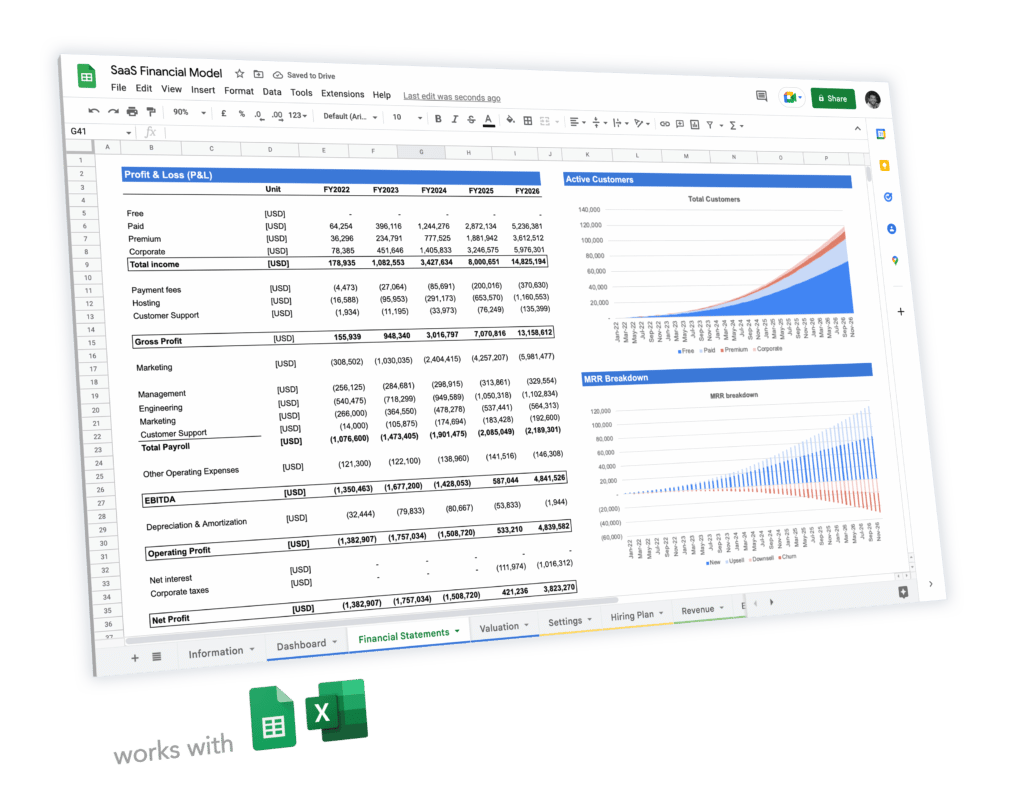France’s R&D tax credit (Crédit d’Impôt Recherche or “CIR”) is one of world’s most attractive tax incentive scheme for startups. Yet many French founders have never heard of CIR before. Unfortunately, they are missing on up to 30% of their R&D expenses refunded in cash!
In this article we’ll explain you what the R&D tax credit means for businesses in France, how it works and why it’s especially relevant for startups.
Is your startup eligible for France’s R&D tax credit? How much can you claim? What does it mean for your runway? We will cover:
What Is France’s R&D Tax Credit (CIR)?
Le Crédit d’Impôt Recherche (“CIR”) is France’s tax incentive program that aims to promote companies of all sizes investing in research & development (R&D).
In simple terms, any eligible business can claim qualifying R&D expenses under the R&D tax credit sceme. In return, companies receive up to 30% of the amount claimed as a tax credit. The resulting tax credit is then used to offset any corporate taxes in the future.
Is Your Startup Eligible?
The eligibility criteria for France’s R&D tax credit are very broad. Indeed, all types of businesses from any sector can be eligible as long as they invest in R&D.
Also, it doesn’t matter whether your business is loss-making or profitable. Indeed, even loss-making businesses can claim R&D expenses under the CIR tax program and carry forward any tax credit in the future. So as long as you spend in R&D, you can claim CIR.
The question then is: what R&D costs exactly can you claim under the tax program?
What R&D expenses can you claim?
Any expense that fall under either fundamental research, industrial research or experimental development can be claimed. Also, these expenses need to be carried out in the European Economic Area to be qualifying under France’s tax credit program.
Luckily, there are many types of expenses you can claim under France’s R&D tax credit scheme. As long as you can justify these expenses are only related to the qualifying research and development work, you can claim expenses such as:
- Salaries of employees involved in research & development projects, as well as managers and directors involved in supervision
- Subcontractor expenses
- Operating expenses
- Depreciation expenses
How Much Can You Actually Get?
Eligible companies can claim CIR at a rate based on the amount of qualifying R&D costs they claim:
- Under €100 million R&D costs, companies can claim 30%
- Above €100 million R&D costs, the rate is 5%
It’s worth mentioning that the amount is calculated per year (année civile in French) i.e. from January 1st to December 31st.
As explained above, loss-making companies that therefore don’t have any corporate taxes yet can carry forward their resulting tax credit for the next 3 years.
Can Your Startup Get CIR Paid Back In Cash?
What’s even more interesting with France’s CIR is that any unused tax credit carried over can be refunded in cash under certain conditions. Luckily, virtually all startups meet these conditions.
Usually, the rule is for a company to have unused tax credit for 3 years. Only then a company can receive CIR in cash, instead of carrying it over for a 4th year (as it is often the case in other countries).
Instead, startups typically don’t need to wait that long. Indeed, any company falling under one of the criteria below can get its CIR refunded in cash without the need to carry it over for 3 years:
- New companies incorporated less than 5 years ago
- “Jeune Entreprise Innovantes” (JEI): companies created less than 8 years ago and investing heavily in R&D (15%). See more on JEIs here
- Businesses with less than 250 employees and €50 million turnover
- Businesses with less than €43 million assets on balance sheet
Why Does It Matter For Your Runway?
Understanding how France’s R&D tax credit works for startups can help you save significant amount of money. Indeed, if used correctly, the R&D tax credit can save startups up to 30% of their R&D expenses per year, significantly decreasing cash burn and improving cash runway.
That’s why founders should always be mindful of taking into consideration potential R&D tax credit benefits in their cash flow forecasts.
Yet, don’t be too optimistic either: you can’t reasonably assume all your R&D expenses qualify under the scheme. Indeed, if you’re too optimistic, you might have some bad surprises down the road.
So when it comes to forecasting tax credits in general, make sure to ask your accountant whether you qualify to avoid mistakes.
Note: most startups capitalise a part of their R&D expenses. Indeed, there are clear advantages to capitalise your R&D expenses as a startup. If you aren’t familiar with R&D capitalisation, you might be missing on significant savings. For more information, read our article here.



 5-year pro forma financial model
5-year pro forma financial model 20+ charts and business valuation
20+ charts and business valuation  Free support
Free support